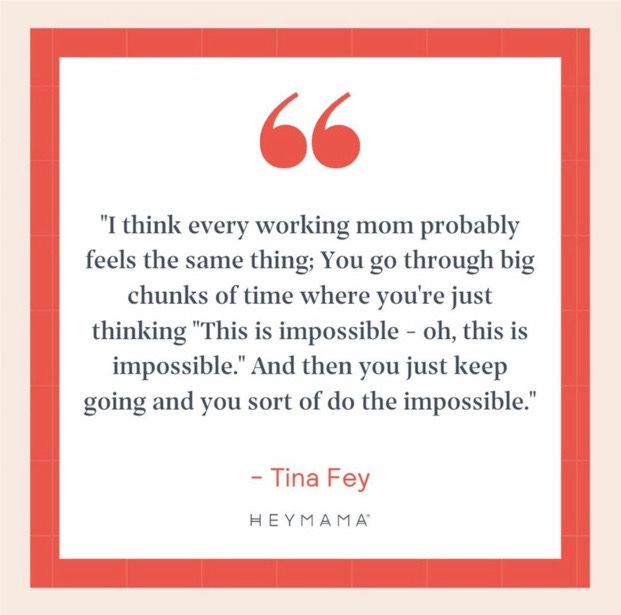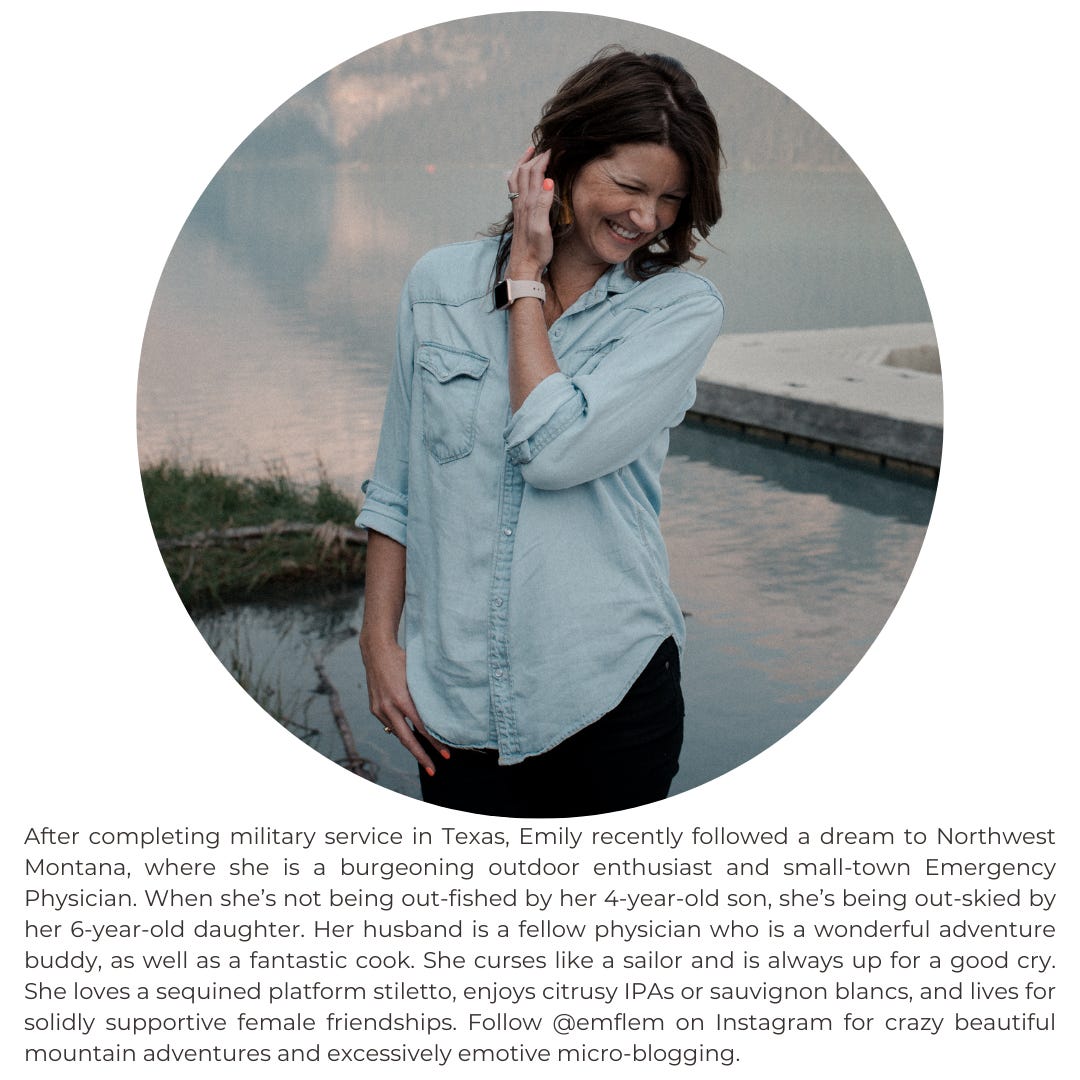Letter 84: Extricating the Self from the Work
When we define our all ~ Women's Work Series #1 , Emily Fleming
We’re so happy you’re here! The Learning Curve is a weekly newsletter where women of all ages share their understandings, joys, and learnings through their personal narratives. Our writers span many generations, cultures, identities, and ethnicities.
We’d like to welcome our recent new subscribers! If you haven’t subscribed yet, please join us!
Click play to hear Emily read today’s letter.
Happy March and welcome to the first week of our Work Series!
Molly and I asked several women to share their insights about their impressions and experiences with work for our third TLC series! Our first series on friendship can be found at the bottom of this post and our second series, “Limitless Women” can be found at the top of this post.
The derogatory term “Women’s Work” describes work that is typically relegated to women, including housework and childrearing, but teaching and nursing are also often included within the phrase. When Molly and I were crafting this series, I thought about how important it was to flip some of the societal expectations of women who work inside and outside our homes on its head. Why is “women’s work” degraded? Because it is deemed unimportant. But nothing is further from the truth. As women, it is incredibly important for us to reinforce the idea that what we do matters. Our work matters to our families, to our communities, and—most of all—it matters to us.
Our frequent contributor Emily Fleming, an Air Force veteran and emergency room physician, is kicking off our series with today’s letter. She doesn’t offer us easy answers, but she shares what it is like for many of us who have a calling both to our families and to ourselves. She writes, “Each of us should be granted the right to choose how big of a role we want our chosen vocation to play in shaping who we are.”
I can’t wait for us to explore these ideas together over the next few weeks. Take it away, Emily!—Emily Smith
Recent pushback to the notion of having it all has been,
“You can have it all, just not at the same time.”
I offer you another evolution:
You can have it all as long as you’re the one defining your all.
Over and over again.
Neha Ruch, @motheruntitled
Whether through messages I received as a kid or through my own sheer will, I grew up believing that I could be anything I wanted to be. I made a concerted effort in my adolescence to investigate potential careers, shadowing every family member who would have me. Near the end of high school, I fell in love with medicine, thereby setting myself on a career path that I knew would be incredibly long and all-consuming.
Once I chose medicine, my teachers and predecessors reinforced how arduous and difficult a path it would be. It was a vocation and a calling, not just a job. The education and training it took to get to the finish line were not for the faint of heart. Long hours, little sleep, and tremendous personal sacrifice were given, but there was honor in it. At the time, I never questioned the reasonableness of what was being asked of me. The trade-off was that if you were selfless and noble enough to choose medicine, there was an expectation of personal fulfillment.
But most physicians were men. In 1980, roughly seven percent of practicing physicians were women. In 2019, that number had climbed to 36%, despite the fact that 50% of medical school students were women. Men often have the luxury of their careers being a foregone conclusion. They can proceed with their training and assume that someone else will handle the mess of birthing and raising children. For me, as for many of my female colleagues, figuring out how and when to have children during my medical training was a problem I needed to solve.
Early in my intern year of residency, there was an event during which our female attendings took the female residents out to dinner. Our hope was that these (very slightly) older and (much) wiser women would divulge their secrets of success for female physicians looking to balance work and family. My female classmates and I all had the same questions about their opinions on the ideal time during medical training to have babies, and how to Have or Do “It All”. Medicine never actually came up. We knew we’d figure out how to be doctors. We were more interested in figuring out how to be mothers as well.
I do not recall ever hearing about our male counterparts having the same questions or concerns. One of my male classmates actually had the gall to inform me that my children would inevitably be “messed up” because I had chosen to work outside the home. I was shocked that this attitude persisted in the 21st century, but recognizing that there are still people who feel this way has gone a long way to explain some of the challenges I have faced.
While I knew that a career in medicine would be incredibly demanding, I didn’t foresee how much more challenging it would be for me to have a career and also have children. Trying to find a good time for pregnancy, childbirth, and maternity leave during medical training was just the tip of the spear. Coordinating childcare schedules between two physician parents has proven to be a never-ending puzzle needing to be solved on a daily basis. Throw in some extracurricular activities and the occasional surprise sick day and you have a real party.

Many women in my generation received messages similar to the ones I was hearing, about how we could be anything we wanted to be. But the men in our generation were not necessarily delivered the correlative messaging that they would be called upon to domestically support our lofty endeavors. An ongoing conversation I have with my girlfriends is how challenging it is to equitably divide household and parenting responsibilities with our male partners who also work outside the home.
In the short term, it can feel easier to just handle it yourself; by default, women carry all of the mental load anyway. But thinking about and executing the majority of all domestic and parenting tasks while also having a career is horrendously unsustainable.
I have an incredible partner who supports me in my work and shares responsibilities at home. But this has not come naturally to him and has required a significant investment of time and countless—and often difficult—conversations. The division of labor at home is constantly reassessed as our children grow and our schedules shift, often after one (or both) of us is feeling pinched by our current arrangement.
As a working mom, I have discovered that there is no truer statement than the following: Society expects us to work as though we do not have children and parent as though we have no job. Early morning or late afternoon work meetings are scheduled without regard to the responsibilities of parents with school-aged children. It is as though the very foundations of our society are built upon the presupposition that every household has a responsible adult at home at all times, and mothers bear the brunt of the weight of this expectation. School events take place during the middle of the day, and are often planned with such short notice they are impossible for working parents to attend.
I wrestle constantly with how to achieve the kind of balance I want. I oscillate between wanting to lean into leadership roles at work and being as present as possible at home while my children are young. I am grateful for the privilege of having this choice, while also feeling frustrated that my male counterparts do not seem to feel put upon to make it. It can be hard to separate what I want from what I feel I *should* want. I also recognize that my desires change. In some seasons, I feel burnt out by work and want to be home more with my family. In others, I feel energized and empowered by the work that I do, and battle resentment over my domestic responsibilities.
I recognize that not every woman who works outside the home wrestles with the same existential crises I do. Some of this is just intrinsic to my personality, and some of it is because I chose a field that is inherently demanding. When you spend over a decade training to do a job, it can be difficult to extricate the Self from the Work. It helps to remember that we are not just the summation of what we do. To put it differently, your job is often the least interesting thing about you. But each of us should be granted the right to choose how big of a role we want our chosen vocation to play in shaping who we are, as well as how many different roles we want to play.
With gratitude,
Emily Fleming
P.S. Emily’s previous letters Instrument Not Ornament, Let it Be, and Full of Hope are also must-reads.







